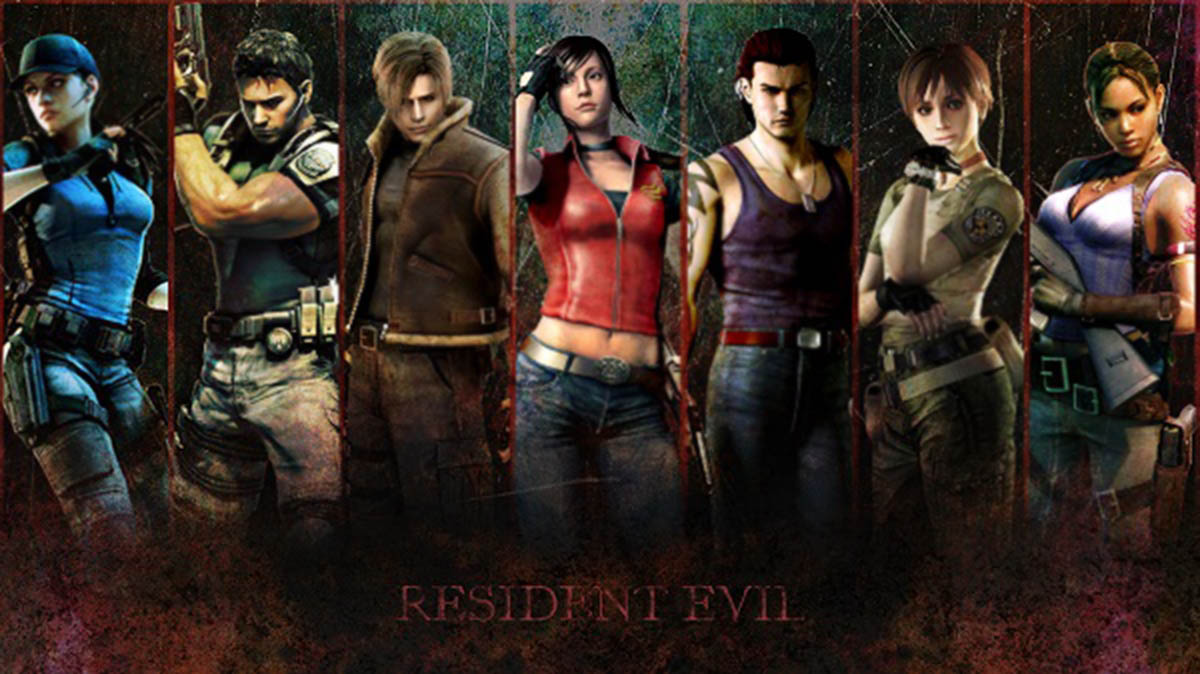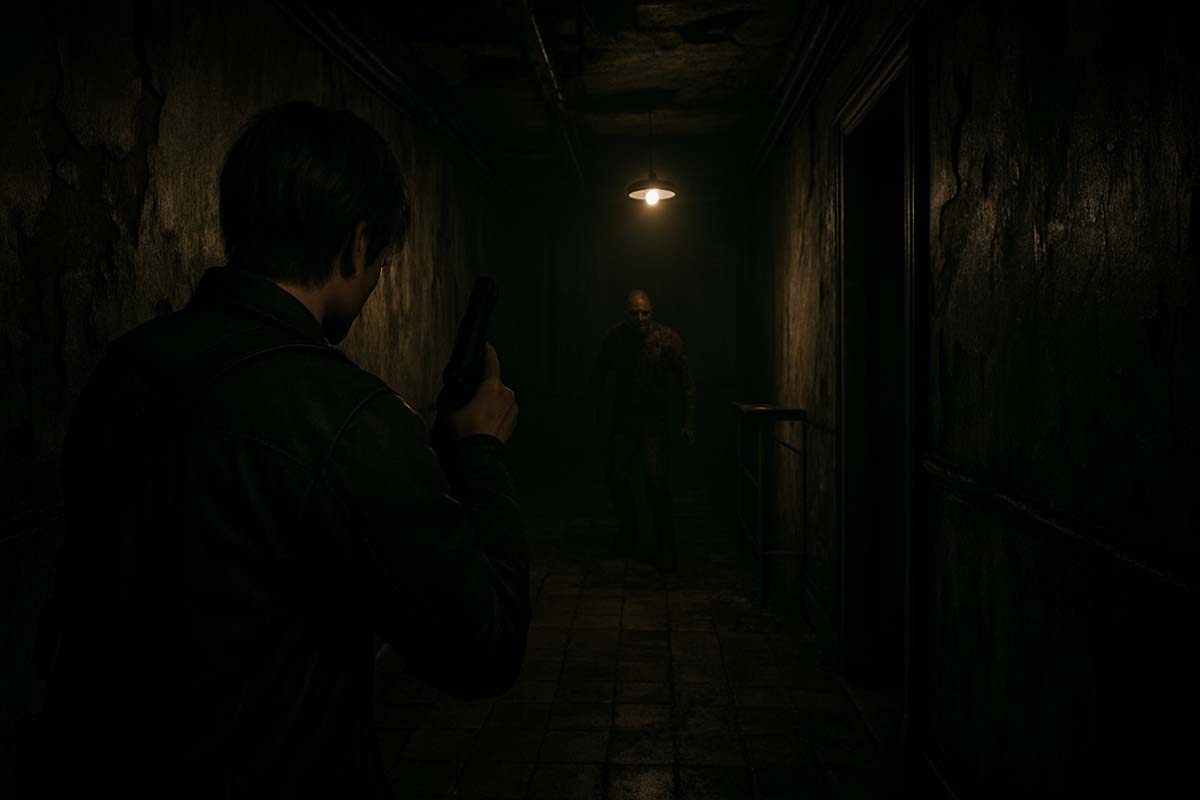The Birth of Resident Evil
The Foundations of Horror Gaming
In the mid-1990s, video games were undergoing a transformative period. Capcom introduced Resident Evil in 1996, a title that would become synonymous with survival horror. Directed by Shinji Mikami, this project was inspired by earlier works such as Sweet Home. It sought to blend fear, strategy, and action in a way that few titles had attempted before.
The Mansion That Changed Gaming
Set in a sprawling mansion teeming with undead creatures, the game’s premise was simple yet effective. Limited resources, ominous atmospheres, and intricate puzzles created tension that kept players on edge. This was no ordinary action game. The emphasis on vulnerability redefined what players expected from horror experiences, laying a foundation that would influence countless future games.
Technical Choices That Built Tension
The fixed-camera angles were more than a technical choice. They added a sense of unease, as players couldn’t always see what lay ahead. Coupled with haunting sound design, every step in the mansion felt like a calculated risk. Resident Evil didn’t just introduce a new genre; it solidified survival horror as a staple in gaming.
A Legacy in the Making
The game’s initial release saw widespread acclaim, despite its relatively niche appeal at the time. Players marveled at its ability to balance fear with engagement, turning each encounter into a memorable event. Developers, inspired by its success, sought to emulate the mechanics and atmosphere that made Resident Evil so groundbreaking.
Core Gameplay Mechanics
Survival Through Strategy
At its core, Resident Evil revolved around survival. Players weren’t given infinite ammunition or invincible characters. Instead, they had to make every shot count, conserve supplies, and think critically about each decision. This approach fundamentally changed the way players interacted with horror games.
The Challenge of Resource Management
Resource management became a defining element. Bullets and healing items were scarce, forcing players to weigh the risks of engagement. Should you fight a zombie or save ammunition for something worse? Such questions were a constant source of tension. Inventory space was also limited, requiring careful planning and prioritization. Each item carried had to be considered in relation to its necessity for survival.
Puzzles That Told a Story
Puzzles further set the game apart. These weren’t mindless tasks but intricately designed challenges that tied into the narrative. Finding a key often meant deciphering cryptic clues or navigating through perilous areas. This combination of mental and physical challenges made every victory feel earned. The puzzles, designed to frustrate and challenge in equal measure, became a hallmark of the franchise.
Fear Beyond the Visual
The horror elements weren’t limited to grotesque monsters. Isolation played a significant role. Exploring desolate environments with only faint clues of others’ fates heightened the sense of dread. Fear wasn’t just about what players saw but also what they imagined lurking in the shadows. The genius of Resident Evil lay in its ability to evoke a primal sense of fear, amplifying even mundane moments into nerve-wracking experiences.
Immersion Through Sound and Health
Another groundbreaking feature was the health system, represented by a heartbeat monitor. It gave a visual and auditory cue of the character’s state, adding another layer of immersion. Every decision carried weight, with consequences that could mean life or death.
The game’s sound design deserves special mention. Every creak of the mansion, every low growl from an unseen enemy, and every echoing footstep combined to create a soundscape that heightened tension. Silence was equally impactful, leaving players in constant anticipation of the next threat.
Evolution Across Generations
A Series That Refused to Stay Static
Resident Evil has never been static. As gaming technology advanced, so did the series. Early titles featured static backgrounds and tank-like controls, which some found clunky but others praised for their contribution to the tension. Over time, Capcom refined these mechanics to keep pace with industry trends.
The Revolution of Resident Evil 4
In 2005, Resident Evil 4 marked a turning point. The fixed-camera perspective was replaced with an over-the-shoulder view, allowing for greater immersion. This shift wasn’t without risk, as it leaned more toward action than pure survival horror. However, it successfully balanced suspense with modern gameplay expectations, earning critical acclaim and expanding the franchise’s audience.
Experimentation and Fan Divides
Subsequent entries experimented further. Some, like Resident Evil 7, returned to the series’ roots with a first-person perspective, enhancing the horror through a more personal experience. Others, like Resident Evil 6, embraced high-octane action, though this departure divided fans. These changes demonstrated Capcom’s willingness to innovate while remaining true to the series’ essence.
Timelessness Through Remakes
Remakes of earlier titles, including Resident Evil 2 and Resident Evil 3, showed how timeless the franchise is. These updates retained the spirit of the originals while modernizing visuals and gameplay, introducing a new generation of players to the series’ legacy. Players who experienced the originals found themselves captivated once more, while newcomers discovered what made these games classics.
Expanding the Universe
Over the years, spin-offs and experimental titles explored different aspects of the Resident Evil universe. Games like Resident Evil: Code Veronica and Resident Evil Revelations delved into side stories and expanded the lore. These entries offered fresh perspectives while retaining the core survival horror elements that fans loved.
The Franchise’s Cultural Impact
Shaping Perceptions of Zombies
Resident Evil’s influence extends far beyond gaming. The franchise helped shape popular perceptions of zombies, with its grotesque designs and bioengineered horrors becoming iconic. Its success spawned multiple adaptations, including films, animated features, and novels. While opinions on these adaptations vary, their existence underscores the series’ cultural significance.
A Blueprint for Horror Games
The game’s impact on the horror genre is immeasurable. Titles like Silent Hill and Dead Space owe much to the groundwork laid by Resident Evil. Its blend of atmospheric tension and resource-driven gameplay became a blueprint for many developers. Competitors often sought to replicate its mechanics, though few achieved the same level of success.
Emotional Resonance and Societal Fears
Beyond its mechanics, Resident Evil resonated with players emotionally. The narratives, often centered on human resilience and corporate malfeasance, reflected societal fears. Themes of bioengineering and uncontrollable science were particularly poignant in an era of rapid technological advancement. The stories, though fictional, raised thought-provoking questions about humanity’s relationship with technology and ethics.
Reaching a Broader Audience
The films, while controversial among fans, introduced the series to a broader audience. Comic books and merchandise further cemented its place in popular culture. Even non-gamers recognize the name Resident Evil, a testament to its pervasive impact.
Timeless Storytelling and Complex Characters
The franchise’s storytelling often tackled moral ambiguity. Characters were rarely one-dimensional heroes or villains, adding depth to their motivations. Albert Wesker, for example, became one of gaming’s most compelling antagonists, embodying ambition and betrayal in equal measure.
A Legacy That Continues to Grow
Today, Resident Evil remains a touchstone in gaming. It continues to inspire discussions about what defines survival horror. With each new release, Capcom reinforces the series’ relevance, ensuring its legacy endures for generations to come. It serves as a reminder that innovation and risk-taking can yield enduring success.
Whether through groundbreaking mainline entries, experimental spin-offs, or reimagined classics, Resident Evil remains at the forefront of survival horror. It exemplifies how a series can evolve while honoring its roots, ensuring that its impact will resonate for years to come.



